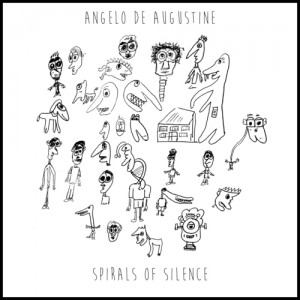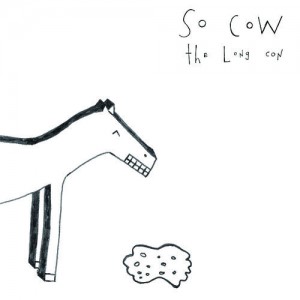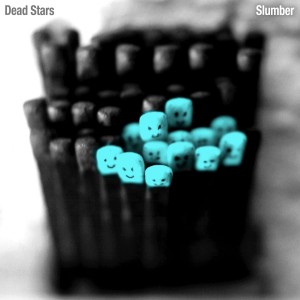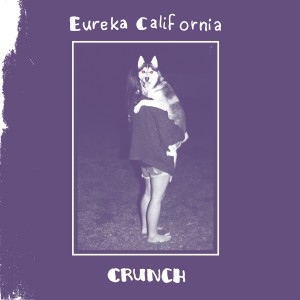Young Tongue – Death Rattle
Still waters run deep. That colloquialism kept bouncing around in my head while listening to Young Tongue long overdue, much anticipated debut album. Why do I keep coming back to that phrase? Still waters run deep. Young Tongue isn’t a band that I would refer to as still in any kind of literal sense, going on short sprints with other great indie acts such as Mr. Gnome while maintaining a consistent gigging schedule in their hometown of Austin. This cliché has such resonance with me for this album because while most indie, local based artists seem to ebb and flow on a 1-3 year calendar, Young Tongue has been consistently plugging away for years and year Eight years to be exact – 5 of those in Austin. As a fan I’ve been following them just about all of those 8 years (they were one of the early pioneers of the musical flow from Asheville, NC to Austin, TX).
Musically Young Tongue leans heavily on the mid 2000s’ indie rock explosion – drawing inspiration from the likes of Interpol and Franz Ferdinand. Their sound relies heavily on the 8th note counterpoint between lead guitar lines and bass riffs. Daryl Schomberg’s intense, shifting drum patterns provide the backdrop while Stu and Liz Baker’s melodic and lyrical duets shimmer ontop. At it’s best all the parts fit into place like mechanical gears and seeing them perform live is like watching a well oiled steampunk machine. At it’s worst the gears don’t quite fit into place and the music can and machines lurches forward uncomfortably.
For a new listener of Young Tongue this album provides the truest and most exciting musical snapshot of Young Tongue. Young Tongue has long been a band plagued by the difficulty of capturing their live charisma and translating this to a record. Death Rattle unequivocally meets this challenge. Death Rattle provides more than enough fuel to continue the momentum Young Tongue has been gaining in recent years.
As a longtime fan and listener my only disappointment in this album is that feels like Young Tongue has been treading water. While the album only has one song – Matriarch – from their previous album as the Baker Family, a lot of these songs feel like a rewrite of old material and a lesson in habitual songwriting. The tunes that stuck out to me were the ones where I felt like they were reaching for new sounds, new styles. Heavy Metal Thunder – the 3rd track and the de facto single from the album – takes the best of their writing style and reaches for new terroritory. It keeps the driving rhythm of Nathan Ribner’s bass but the guitar lines and vocals refrain from getting sucked in the busy, insecure clutter that dominates other tracks like Sand Dance. The song grows into a huge anthem, culminating in a vocal counterpoint that few bands can pull off.
For new fans, this album will be played over and over. For those of us familiar with the Young Tongue catalog, it provides us with a great touchtone but I know I will be waiting to see where the second album takes us.













